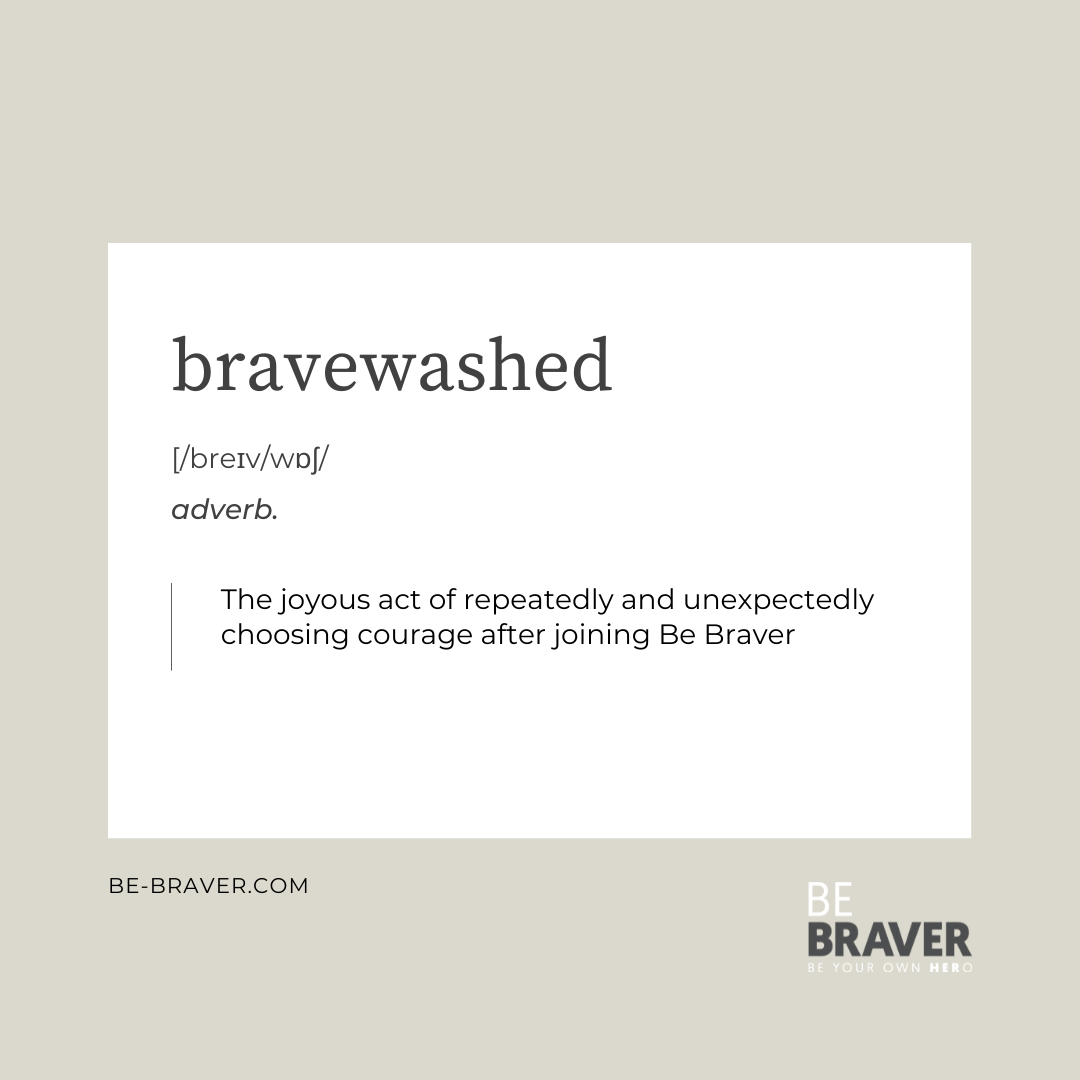When I started from a position of curiosity, to learn more about the suffragettes and courage, my journey found me fusing research from applied psychology, sociology, behavioural sciences and philosophy.
I discovered new ideas about courage and bravery. That the great leaders in history were courage practitioners.
I found that we are often braver than we think. You. Me. All of us.
I have evidenced, that when we understand it as superpower that is uniquely ours in how it manifests, one we can model, practice and understand – the seemingly impossible suddenly becomes very possible.
The change we want to create, the future we want to move towards, the person we want to become. It’s all up for grabs.
I offer ‘a novel and pioneering view of leadership and life’. So my clients have described it.
A new perspective on living and leading, by brave action and courageous decision making. The Be Braver model.
A programme, practice, and pathway, where self-awareness, self-efficacy and courage transform the way we travel. Individually and collectively.
Now Be Braver is a mindset, model and a community.
As much for personal growth as for professional growth. A framework for all of us to benefit from. Young and old, experienced and exploring. For those hungry to find and develop their fullest potential, individually and collectively.
And how do we do it? Can simply thinking about COURAGE and BRAVeRY IT really help us be braver LEADERS?
Through a deeply individual, personal and exploratory process of understanding why, when and how, to take brave action and make courageous decisions. Which when teams travel together, offers a framework, language and toolkit to share. I know we can find ways to be braver. Act our way in to courage.
That are less scary and dare I say it more enjoyable?
And to be very clear, choosing courage when it demands deep self awareness at an individual and personal level, does not equate to it being self-serving.
Two of the many perspectives which inform the Be Braver model, are Alfred Adlers Psychology, and for similar reasons Stephen Coveys more commonly recognised Circles of Influence.
Like all the concepts in Be Braver, they ask us to look at how we experience and understand our internal and external worlds.
To situate ourselves in relation to the barriers, opportunities, solutions and ideas we find when we know where to look.
To challenge how we perceive and understand both. In offering a simple applied structure, to complex ideas, we can make meaningful change that is truly transformative.
Not simply for a workshop and a coaching space - but for a lifetime of application and practice.
How we focus, interpret and attend to our worlds, influences the outcomes we aspire to achieving. The results we hope to create. The change we want to affect.
Alfred Adlers theories of individual psychology posit that the individual can not be divided from the world in which we are situated. We exist in relation to it and each other.
His work asks us to consider things such as: -
💡 The uniqueness of each us
💡The control we have over our goals (not being able to control our environment but we can our social connections)
💡Our creative power to shape stories and meaning
💡Using mastery and competence as the motivation and means of overcoming inferiority
💡The importance of social connections
💡The freedom we have too choose our responses
💡 The interconnectedness of an individual's thoughts, feelings, behaviours, and social context.
Similarly Stephen Covey asks us to think about where we focus our time, effort and energy
💡 Am I an individual who sees the world as something determined by my actions?
💡 Do I think powerful others are mostly determining what happens?
💡 Do I think what happens is down to luck or chance?
These ideas, and many others, underpin the model and framework, for courageous decision making and brave actions, which we find in Be Braver leaders.
Our growing community of practitioners who are living with less fear and leading courageously.
Stopping to pause, reflect and notice.
Having the self awareness, to appreciate areas where they individually and collectively, have greater, or lesser influence control. Letting go of unnecessary mental loads. Renewed energy. Commitments to focus on areas of influence.
Focusing on brave action, courageous decisions and conversations to accelerate desirable outcomes. Be Braver leaders have the tools, motivation, clarity, confidence and connection - to focus on what matters most. The courage to make the bold decisions and take brave action.
So the question to ask is do you, and your teams, know how to choose courage and Be Braver?
Because if the answer is no, be bold and start making change today. The first step is often the hardest, but now it couldn’t be easier - hop on a call today to find out how we can give you the rest of the tools you need.








